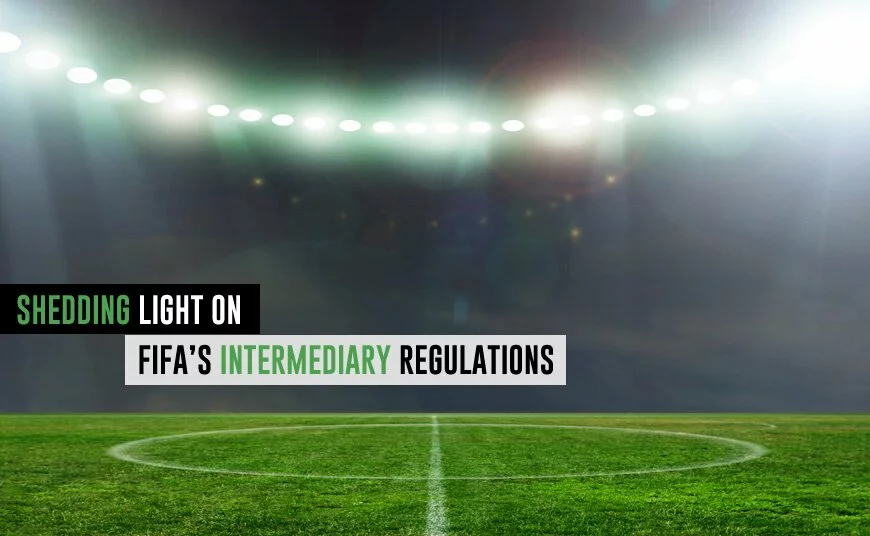The FA Regulations
The FA Regulations have recently been released and differ from the FIFA Regulations in a number of significant ways. For example, The FA will in due course publish a new standard form representation contract for use by intermediaries, which will be limited in duration to a maximum of two years (if an Intermediary is representing a player). Detailed guidance will appear here in due course, but in the meantime, please see our summary of the FA Regulations here.
The FIFA Regulations
If you intend to act as an intermediary and represent players and/or clubs, there are four key areas you need to be aware of under the Regulations.
Important note: The guidance below concerns the FIFA Regulations on Working with Intermediaries. The position in each country may differ depending on the relevant national association's domestic regulations. For information on national associations' supplemental regulations, please see the National Rules page.
1. Your representation contract with your client
You must agree the main points of your legal relationship with your client before you commence your activities as an intermediary in respect of that client. The rep contract should specify the nature of your legal relationship with your client (i.e. a service, consultancy, job placement, etc).
Whereas the FIFA Agents Regulations promoted the use of a standard FIFA template rep contract, there is no template for use by intermediaries. However, your rep contract must contain at least:
- the names of the parties;
- the scope of services (and the way they should be provided/proved);
- the duration of the legal relationship and when the contract will expire;
- the remuneration payable to you (based on a lump sum if representing a club or a percentage of gross income under an employment contract if representing a player);
- the terms of payment;
- the termination provisions; and
- the parties’ signatures.
We also recommend that the rep contract specifies the dispute resolution mechanism, as FIFA will not provide a dispute resolution forum in respect of disputes concerning intermediaries. If the player is a minor (i.e. under 18), the guardian(s) must also sign the rep contract. Note: you cannot be paid by a player or club if the player concerned is a minor.
Your rep contract must be lodged with the national association at the point that you are registered with the association (see point 3 below).
Your rep contract with your client is not limited in duration, so it can potentially be longer than the two year maximum duration set by the FIFA Agents Regulations (though you should seek legal advice in relation to the duration of the contract, as there may be restraint of trade issues). The contents of your rep contract may be governed to some extent by the rules implemented by the relevant national association.
We are able to draft and/or advise you on your representation contract(s) with your clients. Please do get in touch if you would like to discuss your rep contract(s) with us.
2. Your signed Intermediary Declaration
By signing the Intermediary Declaration (“ID”), you are agreeing to respect, abide by and comply with a number of rules and regulations, various obligations and a number of restrictions on your conduct both while carrying out your representation services and generally. You are bound by the terms of the ID, so it is important that you understand and bear in mind its terms at all times.
Your client, whether a player or a club, will be responsible for submitting the ID to the association of the club with which the player has signed / where the player will be registered.
The terms of the ID can be broken down into the following four categories:
-
Agreement to comply with all relevant laws and regulations (ID para 1)
In addition to complying with national and international laws (to which you are likely to be subject regardless of the ID), you are agreeing to be bound by the statutes and regulations of associations, confederations and FIFA when acting as an intermediary. -
Minimum criteria (ID paras 2 – 4)
You are declaring that you are not holding, and will not hold in the foreseeable future, a position as an ‘official’. An ‘official’ is a board member, committee member, referee and assistant referee, coach, trainer and any other person responsible for technical, medical and administrative matters in FIFA, a confederation, association, league or club as well as all other persons obliged to comply with the FIFA Statutes (but not players). You are also declaring that you have an impeccable reputation and that no criminal sentence for a financial or violent crime has ever been imposed upon you. Finally, you are declaring that you have no contractual relationship with leagues, associations, confederations or FIFA that could lead to a potential conflict of interest and you cannot imply that you have any contractual relationship with any of them in acting as an intermediary. -
Restrictions placed upon you (ID paras 5 – 7)
You cannot accept payments to be made by one club to another in connection with a transfer, such as transfer compensation, training compensation or solidarity contributions. Such payments must be paid between clubs and not via you. You cannot accept any payment for your services (whether from a club or player) if the player in question is a minor, i.e. a player under the age of 18. You cannot take part in or be associated with (or own stakes in companies that run) betting, gambling, lotteries and similar activities connected with football matches. -
Transparency and disclosure of information (ID paras 8 – 11)
You are consenting to the national association obtaining full details of all payments made by clubs and players to you for your services as an intermediary. Additionally, leagues, associations, confederations and FIFA are able to obtain for the purposes of investigations your contracts and records in respect of your activities as an intermediary. You are also consenting to the association holding and processing your data and publishing details of disciplinary sanctions taken against you and informing FIFA accordingly.
There are separate IDs for natural and legal persons. The ID for a legal person must be completed by an individual authorised to represent the company/entity. Note that each individual acting on behalf of the company/entity must fill in a separate ID. Broadly speaking, the two forms of ID are very similar, the difference being that in the ID for a company/entity, the individual is making the declarations and agreeing to the restrictions on his own behalf and on behalf of the company/entity.
3. Your registration with the national association
You have to be registered in the relevant national association’s registration system every time you are individually involved in a specific transaction. The way in which such registration is to be achieved will depend upon the system introduced by the national association in question.
4. Your additional obligations under the Regulations
There are a number of other obligations / restrictions which you are subject to under the Regulations. For example (but the below is not an exhaustive list):
- Your name and signature should appear on any transfer agreement or employment contract concluded by a player or club(s) with your services.
- Any payment to you should be made by your client. However, if your client is a player, then after the conclusion of the relevant transaction, the player may give his written consent for the club to pay you on his behalf (if the club agrees to do so).
- You must not pay any part of your fees to an official. For the definition of an ‘official’, see point 2(b) above.
- If a conflict of interest may exist with one of the other parties, you will still be able to act if you disclose in writing the actual or potential conflict of interest and obtain the express written consent of all other parties involved prior to the start of the negotiations.
- You are able to act for both a player and a club in a transaction provided that both have given their express prior written consent before the start of the relevant negotiations. They will need to confirm in writing which of them (player and/or club) will pay you. That written documentation will need to be submitted to the national association as part of your registration process.
If you would like to speak to us in more detail about your rights and obligations under the Regulations, please don’t hesitate to get in touch.


